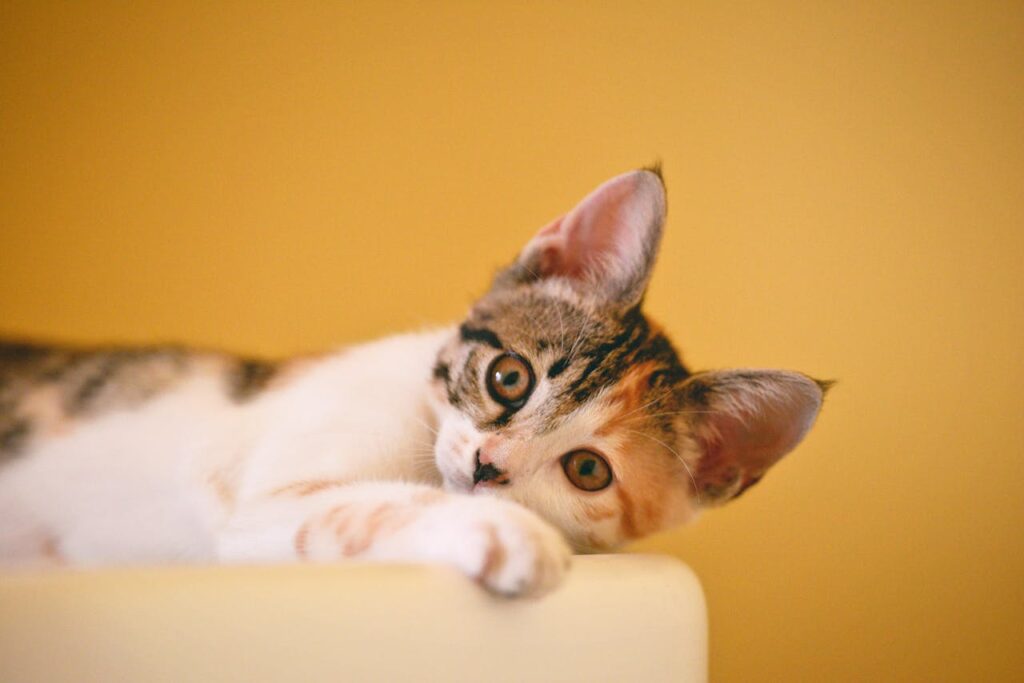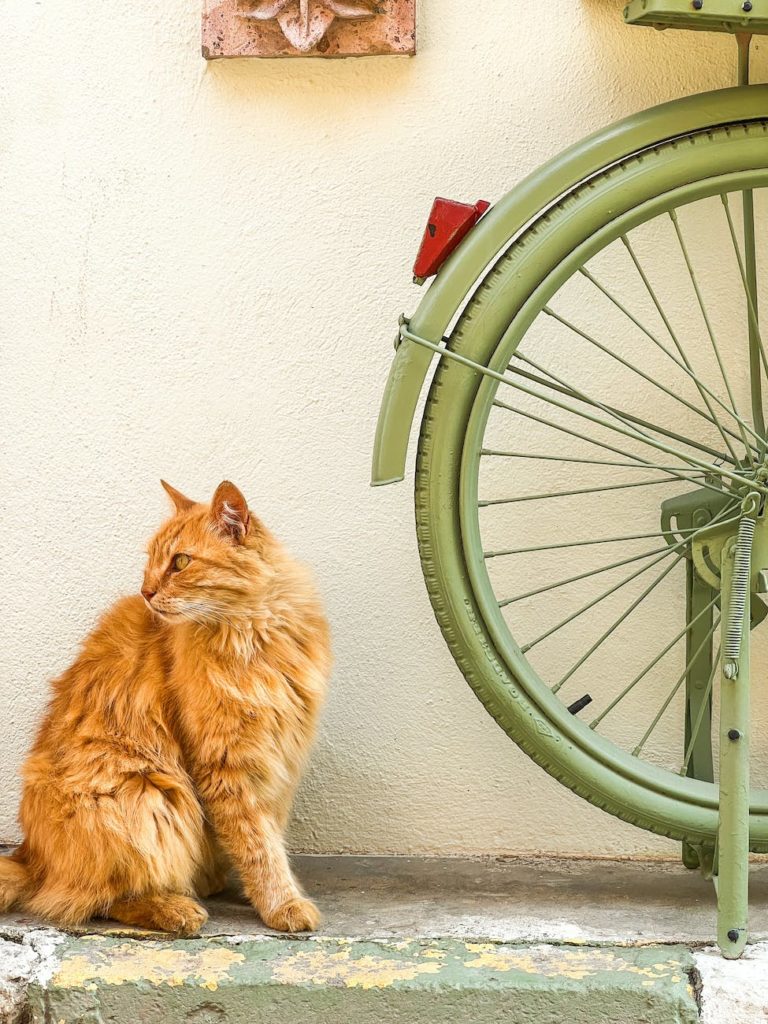Do Cats Get Jealous?
As a pet owner, you may have wondered if cats are capable of feeling jealousy. It’s a common question among cat owners and one that has been the subject of much debate in the animal behavior community. While there is no conclusive answer, many experts believe that cats can experience a range of emotions, including jealousy.
Cats, those enigmatic creatures that grace our homes with their independent spirit and captivating charm, have long been a source of fascination. Do Cats Get Jealous? While their aloofness often leads us to believe they’re impervious to emotions, the truth is far more complex. Cats experience a rich and diverse range of emotions, including jealousy, which can manifest in surprising ways.
In this comprehensive guide, we’ll delve into the hidden world of feline emotions, exploring the signs of jealousy in cats, its underlying causes, and effective strategies for managing this complex behavior. Do Cats Get Jealous? Get ready to discover the fascinating emotional depths of your feline companion and learn how to navigate the sometimes-choppy waters of cat jealousy.
Table of Contents
Meow-gical Minds: Demystifying Feline Emotions
Unlocking the secrets of a cat’s emotional world requires diving into their unique perspective. Unlike their canine counterparts, whose emotions often wear their hearts on their furry sleeves, cats express themselves with a more subtle grace. Do Cats Get Jealous? This doesn’t diminish the richness of their emotional tapestry, encompassing joy, fear, anger, and even that green-eyed monster, jealousy.
Jealousy, in particular, emerges from a cat’s innate desire for security and the warmth of our affections. Do Cats Get Jealous? When they sense a potential threat to their place in the human heart, they might resort to jealous behaviors as a way to reclaim their rightful spot.
This jealousy can manifest in various ways. Some felines might become more vocal, meowing persistently or even yowling to demand attention. Others may resort to more physical displays, such as rubbing against your legs or nudging your hand with their head. Do Cats Get Jealous? A jealous kitty might even go as far as marking their territory with strategically placed “gifts” – a not-so-subtle reminder of their presence.
Understanding these behaviors as expressions of feline insecurity allows us to respond with compassion and understanding. Do Cats Get Jealous? Showering them with extra love, engaging in interactive play sessions, or simply offering comforting words can reassure them of their irreplaceable position in our lives.
So, the next time your cat displays what might seem like jealousy, remember, it’s their way of expressing how much they value your bond. Do Cats Get Jealous? By acknowledging their emotions, we strengthen the connection we share with these enigmatic creatures, unlocking the secrets to their meow-gical hearts.
Unveiling the Signs: Recognizing Cat Jealousy
Cats, with their enigmatic personalities and independent nature, often leave us guessing about their emotions. However, understanding their behavior can be crucial, especially when it comes to identifying and addressing jealousy. Do Cats Get Jealous? So, how can you tell if your feline friend is feeling green with envy? Here are some telltale signs to watch out for:
Increased vocalization: Hissing, growling, or excessive meowing can indicate your cat’s displeasure with a perceived rival. Do Cats Get Jealous? This vocalization might be directed at another pet, a new person in the household, or even an inanimate object that seems to be getting more attention than them.
Body language changes: A cat’s body language can be a clear window into their emotional state. A stiff posture, flattened ears, and a twitching tail are all signs of agitation and anxiety, often associated with jealousy. Do Cats Get Jealous? Additionally, a cat who feels threatened might crouch low to the ground or arch its back, preparing for a potential confrontation.
Changes in behavior: A once-affectionate cat suddenly becoming aggressive towards other pets or humans, exhibiting destructive behavior like scratching furniture or spraying urine, or displaying unusual clinginess can all be signs of jealousy. Do Cats Get Jealous? These changes in behavior are often their way of trying to reassert their position and reclaim your attention.
Altered grooming habits: Cats are meticulous groomers, and any change in their usual routine can be a red flag. Do Cats Get Jealous? Excessive grooming, particularly focused on the belly or flanks, can be a sign of stress and anxiety, often triggered by feelings of insecurity or jealousy.
Other indicators: Additionally, changes in appetite, sleep patterns, and litter box habits can also be suggestive of a jealous feline. Do Cats Get Jealous? If your cat seems withdrawn, lethargic, or loses interest in activities they once enjoyed, it could be a sign of underlying emotional distress.
Understanding the cause: Recognizing the signs of jealousy is crucial, but it’s equally important to understand the underlying cause. Is your cat feeling neglected due to a new pet or baby in the house? Are they reacting to changes in their environment or routine? Do Cats Get Jealous? Identifying the trigger can help you address the issue effectively.
Addressing feline jealousy: The key to dealing with a jealous cat lies in reassurance and positive reinforcement. Lavish them with extra attention, playtime, and affection. Do Cats Get Jealous? Ensure they have access to their favorite toys, scratching posts, and comfortable resting spots. Consider using calming pheromone diffusers or sprays to create a more relaxing environment. If the issue persists, consult a veterinarian or feline behaviorist for further guidance.
By recognizing the signs of jealousy and addressing the underlying cause, you can help your feline friend feel secure and loved, fostering a harmonious and happy home environment. Do Cats Get Jealous? Remember, a little understanding and extra attention can go a long way in easing your cat’s green-eyed monster and strengthening your bond with your furry companion.
Unraveling the Mystery: Why Do Cats Get Jealous?
Cats, with their enigmatic personalities and independent spirit, often leave us wondering what goes on within their fluffy heads. One such mystery is the curious phenomenon of feline jealousy. Do Cats Get Jealous? Ever witnessed your cat acting out when you give attention to another furry friend or even a new human family member? While their behavior might seem like a simple case of “green-eyed monster”, there’s more to it than meets the eye.
Several factors can contribute to this feline emotion. The most readily identifiable cause is the introduction of a new pet into the household, be it another cat, a playful pup, or even a tiny critter like a hamster. Do Cats Get Jealous? Cats, with their deeply ingrained territorial instincts, can feel threatened by a newcomer’s presence, fearing the potential loss of their precious human’s love and attention. This insecurity can manifest in various ways, from subtle changes in body language to more overt displays of jealousy, such as hissing, swatting, or even urine marking.
However, the realm of feline jealousy extends beyond mere territoriality. Changes within the established household routine, such as the arrival of a new baby or an increasingly busy work schedule, can also spark jealousy in your furry friend. If your cat feels neglected or ignored, they may become jealous of anyone or anything that seems to be stealing your attention. Do Cats Get Jealous? This can be particularly true for cats who have been the sole recipients of your affection for a long time.

So, how can we decipher the sometimes cryptic signs of a jealous cat? Some telltale behaviors include:
- Changes in body language: A jealous cat may display subtle cues like flattened ears, narrowed eyes, or a twitching tail.
- Increased vocalization: Meowing excessively, hissing, or even growling can be signs of feline discontent.
- Attention-seeking behavior: Your cat may become more demanding of your attention, rubbing against you or vying for your lap.
- Changes in litter box habits: Some cats express their displeasure through inappropriate urination or defecation outside the litter box.
- Aggression towards the perceived rival: This can manifest as hissing, swatting, or even full-blown physical altercations.
Understanding the underlying cause of your cat’s jealousy is crucial in addressing the issue effectively. If the jealousy stems from the arrival of a new pet, gradual introductions and positive reinforcement techniques can help ease the transition and foster acceptance. Do Cats Get Jealous? In cases where changes in routine are the culprit, making a conscious effort to dedicate quality time to your cat, even amidst the chaos, can go a long way in alleviating their anxieties.
Remember, addressing feline jealousy is a journey, not an overnight fix. Do Cats Get Jealous? With patience, understanding, and a healthy dose of love, you can help your furry friend overcome their jealous tendencies and create a harmonious household where everyone feels cherished and secure.
Taming the Green-Eyed Monster: Managing Cat Jealousy
Addressing feline jealousy requires a multi-pronged approach. Here are some effective strategies to help your cat overcome their jealous tendencies:
- Gradual introductions: When introducing a new pet, take things slowly. Allow your cat to sniff and explore the newcomer from a distance before gradually increasing their interaction.
- Extra attention: Shower your jealous kitty with extra love and attention, especially during the initial adjustment period. Play with them, brush their fur, and talk to them in a soothing voice.
- Positive reinforcement: Reward your cat for calm and friendly behavior around the new pet. This will help them associate the newcomer with positive experiences.
- Environmental enrichment: Provide your cat with plenty of toys, scratching posts, and climbing structures to keep them mentally and physically stimulated. This will reduce boredom and anxiety, which can contribute to jealousy.
- Professional help: If your cat’s jealousy is severe or doesn’t improve with these strategies, consider seeking help from a veterinarian or feline behaviorist. They can provide personalized guidance and support to address the underlying causes of the problem.
Understanding Jealousy: A Deeper Dive
Jealousy, a complex and often misunderstood emotion, can manifest in our feline companions in a multitude of ways. Some cats may exhibit subtle changes in their behavior, while others might resort to more overt aggression. Do Cats Get Jealous? Regardless of its form, understanding the root causes and triggers of feline jealousy can help us better address this behavior and maintain a harmonious household.
Unraveling the Jealous Cat: Decoding the Clues
Observing your cat’s behavior is crucial in identifying the telltale signs of jealousy. A slight shift in their routine, a change in appetite, or a sudden disinterest in their favorite toys could all be indicators of jealousy. Do Cats Get Jealous? More noticeable cues might include increased vocalization, sudden aggression towards other pets or humans, or even destructive behaviors like scratching furniture or spraying urine.
Triggers of Feline Envy: Unpacking the Pandora’s Box
Identifying the triggers of your cat’s jealousy is paramount in addressing the issue. Common triggers include:
- New additions to the household: Introducing a new pet, a baby, or even a new partner can trigger jealousy in cats who feel their position as the center of attention is threatened.
- Changes in routine: Disruptions to a cat’s usual schedule, such as a change in feeding times or litter box location, can create anxiety and lead to jealousy.
- Lack of attention: If your cat feels neglected or ignored, they may become jealous of anyone or anything that takes your attention away from them.
- Competition for resources: If your cat feels they have to compete for food, water, toys, or your affection, jealousy can arise.
Addressing Feline Jealousy: A Multi-pronged Approach
Alleviating feline jealousy requires a multi-pronged approach.
- Provide individual attention: Make sure each cat receives dedicated one-on-one time with you, with specific playtime and cuddle sessions.
- Create a nurturing environment: Ensure all your cats have access to ample resources like food, water, litter boxes, and comfortable sleeping areas.
- Manage triggers: If a specific trigger is identified, take steps to minimize its impact. For instance, if a new pet is the trigger, gradually introduce them to your cat and ensure both receive equal attention.
- Seek professional help: If your cat’s jealousy becomes severe or unmanageable, consult a veterinarian or animal behaviorist for guidance.
With patience, understanding, and the right approach, you can help your cat overcome their jealousy and foster a more harmonious multi-pet household. Do Cats Get Jealous? Remember, your love and attention are the most valuable gifts you can offer your feline companions, ensuring they feel secure and cherished in their home.
Beyond Jealousy: Exploring Other Feline Emotions
While jealousy is a common emotion in cats, it’s not the only one they experience. Understanding the full spectrum of feline emotions can help you create a more harmonious and fulfilling relationship with your furry companion.
Cats experience a wide range of positive emotions, including joy, contentment, and affection. Do Cats Get Jealous? They can also feel sadness, fear, and anxiety. By being attuned to your cat’s emotional cues, you can better understand their needs and provide them with the love, care, and support they deserve.
A Journey into the Heart of Your Feline Friend
Cats are complex creatures with rich emotional lives. Understanding their emotions, particularly jealousy, allows us to better connect with them and build stronger bonds. By recognizing the signs of jealousy, addressing its root causes, and implementing effective management strategies, we can help our feline companions overcome their envious tendencies and live happier, more fulfilling lives.

What is Jealousy in Cats?
Jealousy is defined as the feeling of resentment or bitterness towards someone or something, often due to perceived advantages or benefits they receive that the jealous individual does not. Do Cats Get Jealous? In the case of cats, jealousy may manifest as attention-seeking behavior towards their owner, aggression towards other pets or people, or even urinating outside the litter box.
Signs of Jealousy in Cats
If you suspect your cat may be experiencing jealousy, there are a few signs to look out for. These include:
Attention-Seeking Behavior – Cats may become more vocal, demand more attention, or even follow their owners around the house to get noticed.
Aggression Towards Other Pets or People – Jealous cats may become territorial and lash out at other animals or people who they perceive as a threat.
Urinating Outside the Litter Box – In extreme cases, cats may urinate outside the litter box to mark their territory and assert dominance.
Live Pee Free! Odor Eliminator 100% Eliminates Pet Odor on Contact. 20% Off. No Enzymes, No Fragrance, No Detergent, No Bleach – Safe for Kids and Pets.What Causes Jealousy in Cats?
There are several reasons why a cat may feel jealous. These include:
Lack of Attention – Cats thrive on attention and affection from their owners. If they feel neglected or ignored, they may become jealous and seek out attention in negative ways.
New Pets or People – The introduction of a new pet or person into the household can disrupt the existing hierarchy and cause jealousy in cats.
Changes in Routine – Cats are creatures of habit, and any significant change to their routine can cause stress and lead to jealous behavior.
How to Deal with a Jealous Cat
If you suspect your cat may be experiencing jealousy, there are several things you can do to help:
Increase Attention – Try to spend more time with your cat and give them extra attention and affection to reassure them that they are still loved and valued.
Separate Pets – If you have multiple pets in the household, consider separating them temporarily to reduce territorial behavior.
Stick to a Routine – Cats thrive on routine, so try to stick to a consistent feeding and playtime schedule to reduce stress and anxiety.
Consult a Vet – If your cat’s jealousy is causing significant behavior problems, consider consulting a veterinarian or animal behaviorist for advice.
In Conclusion
While there is no conclusive answer as to whether cats can feel jealousy, many experts believe that they are capable of experiencing a range of emotions. If you suspect your cat may be experiencing jealousy, there are several things you can do to help, including increasing attention, separating pets, sticking to a routine, and consulting a veterinarian or animal behaviorist if necessary.




